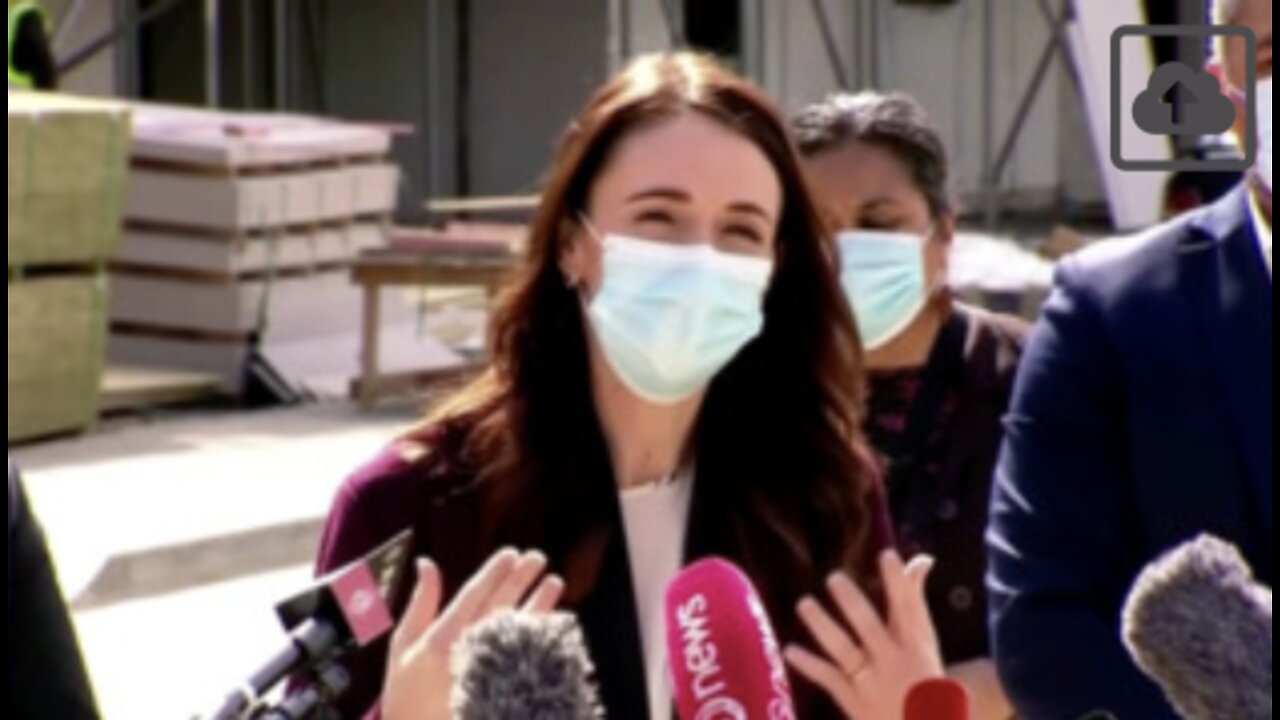Premium Only Content

How We Went from Being Told Not To Wear Masks, to Being Mandated to Wear Them
A TIMELINE OF 2020.
This is an updated version of a previous video I made. It now includes two studies that I felt needed to be in the timeline. There are also some excerpts from W.H.0 reports on mask wearing from March, April, June and Dec, as well as some other video footage that wasn’t in the first video.
As new face mask mandates have just been put in place in New Zealand, both this video and my other recent video: ‘Challenging Epidemiologist Prof Michael Baker on Face Masks & Mass Masking’, need to be watched and shared by as many people as possible. These two videos together should leave people in no doubt that mandating the wearing of face masks for healthy people in the community is not only ineffective, but also harmful.
Here's my other video:
‘Challenging Epidemiologist Prof Michael Baker on Face Masks & Mass Masking’
https://www.bitchute.com/video/mCb0bcFbwGVh/
About this video . . .
In the first four months of 2020, we were repeatedly told that cloth/surgical masks are not only ineffective at stopping viral transmission, but that wearing such masks could actually increase a person’s chances of infection.
On 17 May 2020, a WHO-commissioned study, published by the CDC, found no significant reduction in influenza transmission with the use of face masks:
https://wwwnc.cdc.gov/eid/article/26/5/19-0994_article
This study was a systematic review of randomised controlled trials, which are accepted as the gold standard of scientific evidence.
On 1 June 2020, another WHO-commissioned study, published in The Lancet, claimed a risk reduction of 80% with the use of face masks:
https://www.thelancet.com/action/showPdf?pii=S0140-6736%2820%2931142-9
It was this study that was instrumental in the shift of global face mask policies. However, this study only looked at observational studies, it didn’t look at any randomised controlled trials. Compared to randomised controlled trials, observational studies are considered to be a lower standard of evidence in the traditional hierarchy of scientific evidence.
And this Lancet study received criticism (see link below)
https://swprs.org/who-mask-study-seriously-flawed/
On 6 June, citing “evolving evidence” the Director General of the World Health Organisation announced a change in WHO policy on the wearing face masks by the general public:
“WHO advises that governments should encourage the general public to wear masks where there is widespread transmission and physical distancing is difficult, such as on public transport, in shops or in other crowded or confined environments.”
Prior to this announcement, the WHO had advised that only people with symptoms should wear masks, and they clearly said that people without symptoms shouldn’t wear them.
It should also be noted that in the W.H.O’s 5 June Interim Guidance Report on mask use in the context of COVID-19 (5 June being just one day before their policy change announcement on 6 June), it is stated:
“Many countries have recommended the use of fabric masks/face coverings for the general public. At the present time, the widespread use of masks by healthy people in the community setting is not yet supported by high quality or direct scientific evidence”
And while the W.H.O advised that the general public should be “encouraged” to wear masks, governments and police went further than mere encouragement. Masks were mandated in some places, even for people outside (the data shows that outdoor transmission is rare) and fines were issued for not wearing masks.
On July 11, BBC Health Correspondent Deborah Cohen reported:
“The debate is deeply political. Newsnight understands that the World Health Organisation committee that reviewed the evidence for the use of face coverings in public didn’t back them, but after political lobbying, the W.H.O now recommends them”
Following this change in policy by the W.H.O, for the remainder of 2020, we were told that we should wear face masks, even by those who initially told us that masks are ineffective.
Yet, in the W.H.O’s Dec Interim Guidance Report on mask use in the context of COVID-19, we find the following:
“At present there is only limited and inconsistent scientific evidence to support the effectiveness of masking of healthy people in the community to prevent infection with respiratory viruses, including SARS-CoV-2. A large randomised community-based trial in which 4862 healthy participants were divided into a group wearing medical/surgical masks and a control group found no difference in infection with SARS-CoV2”
The ‘randomised community-based trial ‘ mentioned above is the landmark Danish mask study published in November 2020:
An Evidence Based Scientific Analysis of Why Masks are Ineffective,
https://archive.ph/Op4gN
-
 1:10:41
1:10:41
Wendy Bell Radio
5 hours agoPet Talk With The Pet Doc
71.3K7 -
 LIVE
LIVE
FyrBorne
5 hours ago🔴Warzone M&K Sniping: Drop In For Battlefield 6 Info From The Event
4,189 watching -
 29:00
29:00
DeVory Darkins
15 hours ago $13.78 earnedTrump smacks Russia with CHILLING WARNING Cincinnati officials EXPLODE over viral fight
42.3K88 -
 1:12:40
1:12:40
Omar Elattar
17 hours ago71 Mins With A Hollywood Comedian & Dating Expert: #1 Reason Men Can't Find "The One" (4,000 Study)
3.26K1 -
 LIVE
LIVE
BBQPenguin_
5 hours agoTasking & PVP! ALL DAY!
40 watching -
 LIVE
LIVE
DoldrumDan
5 hours agoNEW PC TEST #2 NIGHTREIGN INTO FIRST TIME SEEING ELDEN RING IN HD
72 watching -
 18:02
18:02
James Klüg
2 days agoConfronting Unhinged Protesters At Musk's Tesla Diner + Food Review!
33.9K31 -
 LIVE
LIVE
EXPBLESS
3 hours agoLets Level Up Some Guns In Battlefield 2042 | #RumbleGaming | Going In Solo
62 watching -
 26:53
26:53
Scary Mysteries
1 day agoThe Shoe Fetish Slayer: Jerry Brudos
70.5K7 -
 15:17
15:17
AndresRestart
23 hours ago $2.02 earnedVERY COOL Zelda Secrets Found In This Age Of Imprisonment Trailer!
30.5K1